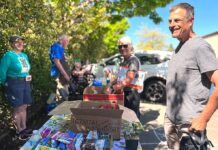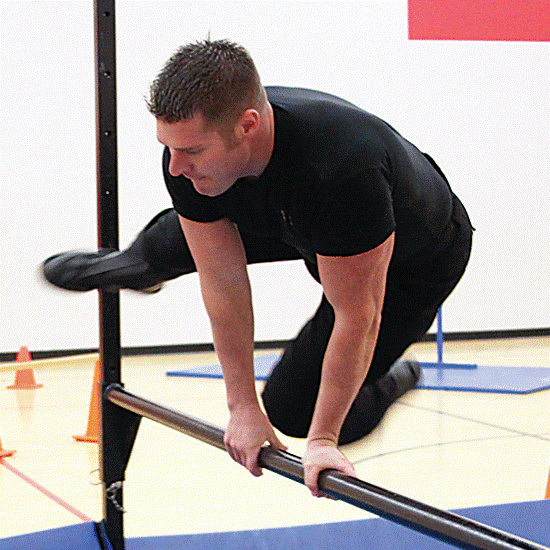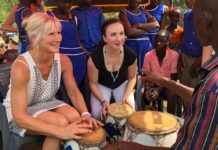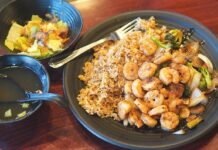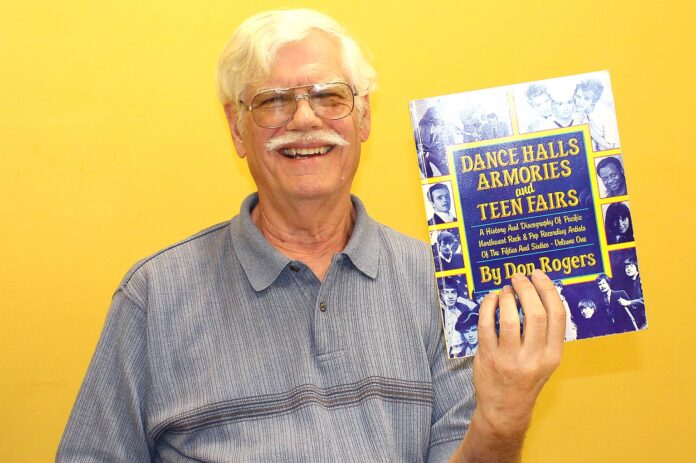
Don Rogers is a walking encyclopedia of knowledge about 1950s and ‘60s rock ‘n’ roll bands in the Pacific Northwest. But he’s not a dry-statistics kind of guy, he’s more of an “Entertainment Tonight”-style purveyor of that era with countless stories of personal encounters with the famous and the back stories of many late-and-great bands.
“I’ve always been a rock ‘n’ roller and keep on being that way,” he said.
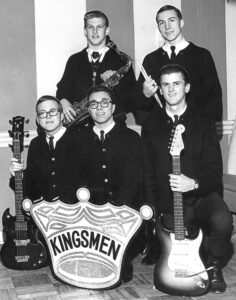
Rogers, 73, will be spilling the tea at the Tualatin Historical Society’s March 6 event (See sidebar) when he will share some of his anecdotes and adventures with audience members.
Rogers, who grew up in rural Washington County before his family moved to Canby when he was 13, started going to teen dances at grange halls, armories and teen fairs when he was 14, which was a popular activity at the time. Some of his favorite spots included the Headless Horseman, a teen night club, and the D Street Corral.
“I was in a couple little bands of my own,” said Rogers, who played the guitar and provided vocals in the Poorboys, the Derelicts and the Vanguard. “We had one or two guitars, drums and a keyboard. We had fun.”
But even more, Rogers liked going to rock ‘n’ roll shows. “We would go down to the Salem Armory and see Steppenwolf and the Beach Boys,” he said. “We also saw Don and the Goodtimes, and the Raiders.” Once Rogers and a friend got to the Salem Armory early for a dance featuring the Don and the Goodtimes and got “hired” as roadies to move equipment to get into the dance for free.
“Everyone thinks the Kingsmen were a one-hit wonder (for “Louie Louie”), but they had a lot of other hits like ‘Death of an Angel’ and ‘Money,’” he added. “‘Louie Louie’ was an audition tape and was never supposed to be released to the public.”
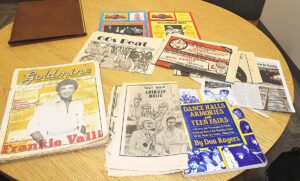
Around this time, when bands like the Kingsmen, the Beatles and the Rolling Stones were moving up from playing small venues to larger ones nationwide, their amplification systems weren’t up to the task, and audiences couldn’t hear the music.
So Kingsmen bassist Norm Sundholm and his brother Conrad designed a high-powered bass amplifier and founded the Sunn Musical Equipment Company in Tualatin, with their equipment being sold all over the world.
In the mid ‘60s, Rogers paid “a buck fifty” to see the Doors and $6 for a ticket to see the Beatles at the Coliseum. “They liked the Portland crowd so well they played three extra songs,” he said. “Their plane into Portland lost an engine, and their limo driver almost hit one of the columns at the Coliseum. They were lucky to get out of Portland alive.
“In 1966 I met John DuVal, the Tikis and Fabulons lead guitar player, at Sherman and Clay (a music store) in downtown Portland. I was skipping school, and he was between classes at Portland State. It was great to jam with someone who was recording for the Tower label. This 15-year-old kid was walking on air when I left that store. John and I would meet again when I was writing my book (on the history of Northwest rock ‘n’ roll) in the early 1980s.”
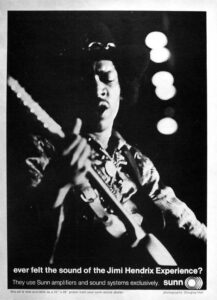
Jimi Hendrix featured in early advertisements for Sunn Amplifiers.
Rogers enlisted in the U.S. Coast Guard during the Vietnam War and afterwards went back to school to study broadcasting. “That’s a quick way to starve to death,” he said.
His biggest literary accomplishment was writing “Dance Halls, Armories and Teen Fairs: A History and Discography of Pacific Northwest Rock and Pop Recording Artists of the Fifties and Sixties – Volume One,” a copy of which is in the archives at the Rock & Roll Hall of Fame in Cleveland.
“I tracked down every person in it,” Rogers said. “It was a lot of fun to do.” (The book, which was never re-published, cost $9.95 originally, and now used copies sell for $50 to $200.)
“This led to doing articles on acts and people,” added Rogers, who became a stringer for several music-related magazines, including “R.P.M.,” “Goldmine,” “’60s Beat,” “The Milkshake Man,” “Milkshake Mademoiselle” and “The Willamette Valley Entertainment and Dining Guide.”
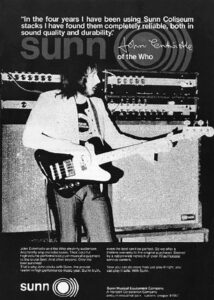
“I interviewed the Supremes, Johnny Rivers and musicians from all over the U.S.,” he said. “I got to meet a lot of my favorite artists.”
Other favorite groups of Rogers’ at that time were the Beau Brummels and the Rolling Stones, and he saw Johnny Rivers, whose hits included “The Seventh Son” and “Secret Angel Man,” perform at the Coliseum in 1983.
“Most of the people I’ve met were beautiful, and only a few were idiots,” Rogers said. “I’ve been in the houses of the rich and famous.”
At one point, Rogers made a list of all the acts he had seen and artists he had met and/or interviewed, and it filled a spiral-bound notebook.
But Rogers’ most lasting legacy may as the founder of Oregon’s oldest vinyl record show, the Record Collectors Show, that includes buying, selling and trading records (LPs, 45s and 78s), CDs, tapes, sheet music, books, posters, photographs and memorabilia. It is held every September at Ackerman School in Canby, where Rogers still lives with his wife Jeannie.
“We sell 70 tables – the show at Los Angeles has 90 tables – and we have been doing it for 42 years,” Rogers said. “We get dealers from four states, and we get people from Boston, Cleveland, Dubai. This is a passion of mine. I started buying records when I was a kid.
“I tell people that when the record show is no longer fun, I will not do it. The rare things are the most valuable, but I can sell an original Beatles album for $25 to $30 because they pressed millions of copies.”
And as a side note, Rogers spend 25 years working in Tualatin at Kambara USA running a matting machine, one of only two in the United States.
So how many records does Rogers own? The answer is that he has a “large” number of them. And he still gets calls from people needing to dispose of their collections, so the treasure hunt goes on.
When the “Sunn” shined in Tualatin
Don Rogers will present “When the ‘Sunn’ shined in Tualatin” at the Tualatin Heritage Center. All are invited.
When: Wednesday, March 6, 2024 1:00 PM 2:00 PM
Where: Tualatin Historical Society, 8700 SW Sweek
For more information, visit tualatinhistory.org/events/when-the-sunn-shinned-in-tualatin





